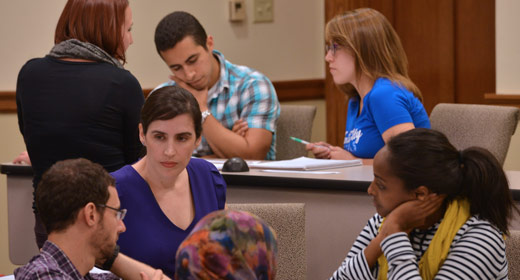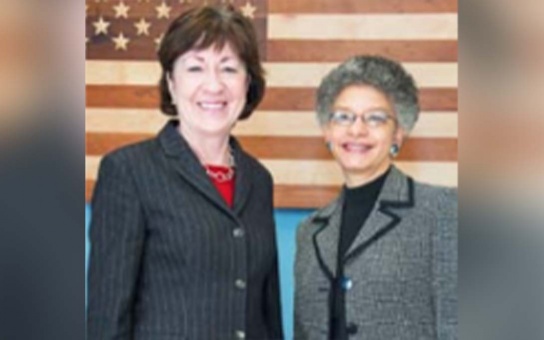
Philanthropic foundations. To many, they're organizations that deserve only reverence—founded and funded by ethical actors, managed by honest brokers, and characterized by selfless acts. But to Megan Tompkins-Stange, who teaches courses in public management, philanthropy, and values and ethics at the Ford School, foundations are also powerful actors that merit some amount of scrutiny.
In her new book, Policy Patrons: Philanthropy, Education Reform, and the Politics of Influence (Harvard Education Press 2016), Tompkins-Stange explores, through anonymous, in-depth interviews with dozens of insiders, how influential foundations have worked to shape public policy, specifically in the education sector.
"For years, activist foundations have been engaging in the education policy arena, and using all of the tools at their disposal on behalf of an aggressive reform agenda," she says, referring to the widespread adoption of common core curricula and the exponential growth of charter schools. But foundations have distinct philosophies—philosophies that guide their policy engagement, philosophies that warrant examination.
Tompkins-Stange illustrates these differences by focusing on some of the largest foundations in the sector—Kellogg and Ford, both founded during the Great Depression, and Broad and Gates, both founded during the tech boom. Whereas Gates and Broad were predominantly described by insiders as "market-oriented investors," "directive," "technical," and "elite," Ford and Kellogg were primarily described as "partnership-oriented grantmakers," "adaptive," "inclusive," and "collaborative."

These are important distinctions, notes Tompkins-Stange.
More directive foundations focus on being strategic, efficient change agents by using a top-down management approach, she says. One source commented that Gates and Broad 'treat grantees like contractors,' emphasizing accountability to specific benchmarks. "If you choose a contractor and manage his or her performance against the contract, you are likely to get compliance," says Tompkins-Stange.
But while this managerial approach may be more effective in the short term, it can ignore what Tompkins-Stange describes as the 'soft stuff'—building trusting relationships with the people and communities that will be impacted. Without these collaborative elements, chosen solutions and strategies can fail, says Tompkins-Stange. "People don't [always] understand the relational components—the "soft stuff" of collaboration"—she says. "But that's what makes or breaks a good organization, a good leader."
To illustrate, Tompkins-Stange describes one local foundation's attempts to address the soft stuff through the Brightmoor Quality Initiative (Tompkins-Stange serves as a consultant).
The Max and Marjorie Fisher Foundation of Southeast Michigan has spent years investing in early childhood care and education in the Brightmoor neighborhood of Detroit. The goal: To improve outcomes for children and caregivers alike.
The foundation has worked to collapse the traditional hierarchical relationship between grantmaker and grantee, co-designing interventions with the caregivers themselves. As equal partners, expert caregivers see problems more holistically and legitimize the initiative's efforts within the broader community, says Tompkins-Stange, who respects the approach, and hopes it's a harbinger of what's to come.
"Trust does matter, and there are ways you can increase it. And relationships do matter, and there are ways that you can build them. And psychological safety does matter, and there are concrete things you can do and learn to build respect among people in your organization," she says, thinking—as is often the case—of her public management students. "I think good leadership and good management can be taught, but you have to approach the soft stuff in as serious and as rigorous a way as you approach the rest."
Below is a formatted version of this article from State & Hill, the magazine of the Ford School. View the entire Spring 2017 State & Hill here.